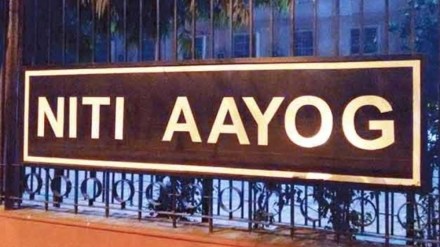Amid reports of leakages in the Mahatma Gandhi National Rural Employment Guarantee Scheme (MGNREGS), the NITI Aayog will appoint a consultant to evaluate the performance of the demand-driven scheme, including adequacy and timeliness of funds, transparency and accountability.
The Development Monitoring and Evaluation Office (DMEO) of Niti Aayog has invited proposals to engage a consultancy firm to support the evaluation of MGNREGS. Interested applicants could submit their request for proposal (RFP) before November 11, 2024.
MGNREGS is a Centrally Sponsored Scheme (CSS) of the Centre but without cost-sharing from states. The scheme has been facing increased scrutiny due to misuse of funds in many states, leading to leakages. Analysts have also suggested that the states should have skin in the game by bearing some expenditure with the Centre.
It is a demand-driven wage employment scheme created as per the the Mahatma Gandhi National Rural Employment Guarantee Act (MGNREGA), which mandates to provide at least 100 days of guaranteed wage employment in a financial year to every rural household whose adult members volunteer to do unskilled manual work. It seeks to augment wage employment opportunities by providing employment on demand and thereby extending a security net to the people and simultaneously create durable assets to alleviate some aspects of poverty and address the issue of development in the rural areas. Works provided under the scheme relate to natural resource management, individual assets for vulnerable sections and rural infrastructure.
During Covid-19 outbreak, the demand for work shot up with the Centre’s expenditure on the scheme rising sharply to Rs 1.11 lakh crore. In FY24, the budget spending was about Rs 89,000 crore and the outlay is Rs 86,000 crore for FY25.
According to the terms of reference, the consultant’s recommendations that lead to an increased financial burden on the government should be avoided unless there is sound evidence emerging from the analysis that an increase may be expedient. Focus should be on resource optimisation/judicious usage of resources.
The consultant would examine the adequacy and timeliness of funds release from the central to the state and local levels as well as transparency and accountability in fund utilization, including tracking mechanisms.
It would also assess the economic costs and benefits of MGNREGS projects, considering factors such as labour productivity and asset creation. It will analyze the quality and sustainability of assets created under MGNREGS, including roads, water conservation structures, and rural infrastructure. Explore innovative ways to link MGNREGS with flagship missions like the Amrit Sarovar project, ensuring synergy and maximizing impact.
